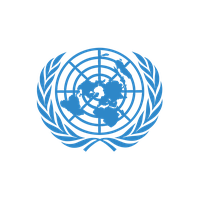
World Toilet Day
Taking place on 19th November every year.
Raising awareness about the importance of sanitation issues.
About the event
It is estimated that over 4.2 billion people don’t have access to safely managed sanitation. This includes 3.6 billion without access to toilets and many more without effective sewage management systems and clean drinking water. Today is all about pushing to change this.
World Toilet day exists to highlight the huge importance of this issue, which is often neglected in favour of other development initiatives such as education and housing. Living without these services makes people vulnerable to disease, stunted growth and, especially for women without safe toilets, vulnerable to violence.
With UN Water running this day, awareness raising campaigns are held worldwide from nations and NGOs to community groups.
How to approach it
World Toilet day might initially draw some sniggers from your students and this is partly the issue. Taboos around toilet usage and sewage systems act as barriers all over the world for effective action. Today is important for simply drawing attention to the staggering amount of people without access to decent sanitation.
Toilets and effective sewage systems are taken for granted in the developed world. Help you students to see how this is, in reality, a great privilege. You could undertake an empathy building exercise in which students are asked to imagine what living in a slum without sanitation systems would be like. There would be sewage everywhere, using polluted rivers for defecation would be dangerous, safe water would be hard to come by.
After this you can show that the solutions can be simple and crucially, nature based. Things like composting toilet blocks are easy to build as are reed beds in waterways that naturally filter the water. As with many of these things, what is needed is investment and attention. Finish up by discussing with your class about how we can ensure these solutions are implemented. Some good examples here are about encouraging western funders to contribute, developing awareness raising campaigns and pressing our own government to contribute more.
Organised by
United Nations

Conversation starter
Did you know 3.6 billion people in the world don't have a toilet? This means that they are more vulnerable to diseases and illness. There are many household items that we might take for granted. What are you grateful to have in your home or school? How would your life be impacted without it?




